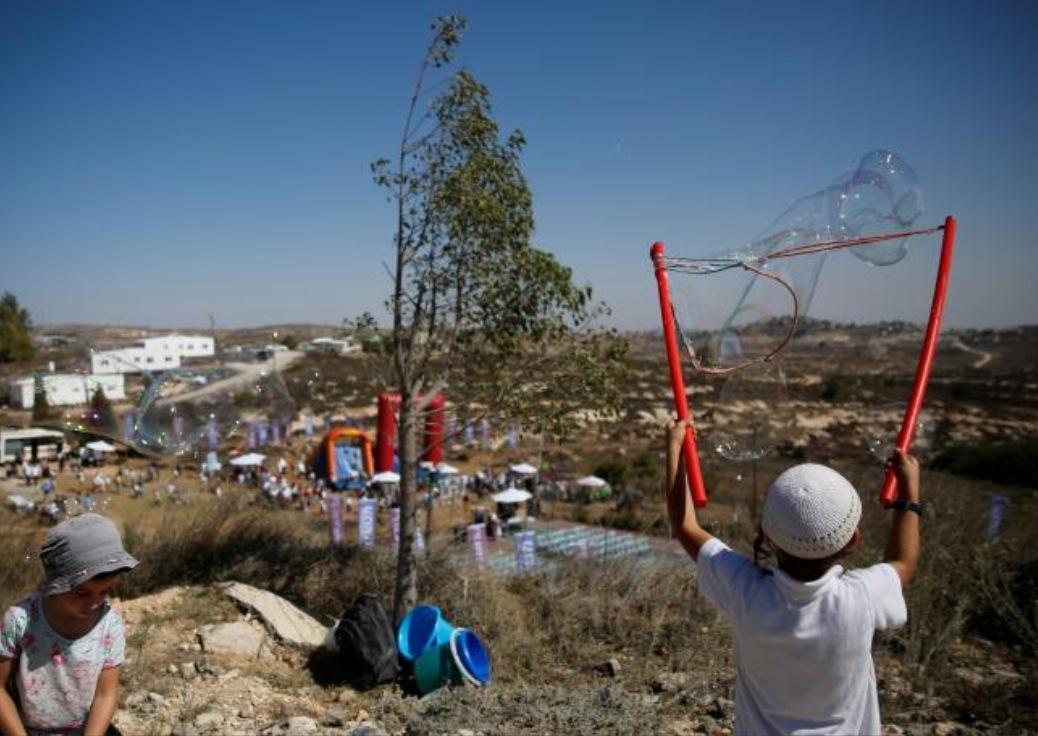Israel steps closer to legalising unauthorised settlements in West Bank
Anti-settlement activists and Palestinians voice concern bill will set precedent for rulings on other 'wildcat' outposts originally not approved by Israeli government

Your support helps us to tell the story
From reproductive rights to climate change to Big Tech, The Independent is on the ground when the story is developing. Whether it's investigating the financials of Elon Musk's pro-Trump PAC or producing our latest documentary, 'The A Word', which shines a light on the American women fighting for reproductive rights, we know how important it is to parse out the facts from the messaging.
At such a critical moment in US history, we need reporters on the ground. Your donation allows us to keep sending journalists to speak to both sides of the story.
The Independent is trusted by Americans across the entire political spectrum. And unlike many other quality news outlets, we choose not to lock Americans out of our reporting and analysis with paywalls. We believe quality journalism should be available to everyone, paid for by those who can afford it.
Your support makes all the difference.Israel’s parliament has voted to give preliminary approval to a bill that could see almost 4,000 Jewish settler outposts in the West Bank legalised.
Ministers voted on Monday 60 to 49 on the legislation known as the Regulation Law, which would recognise 3,881 ‘wildcat’ housing units originally built without Israeli permission on private land in the occupied Palestinian Territories.
"With this law, the state of Israel has moved from the path leading to the creation of a Palestinian state to the path leading to [Israeli] sovereignty" over most of the West Bank, hard-right Education Minister Naftali Bennett, who proposed the bill, told army radio.
The bill in its original form drew criticism from many quarters last month - not least Israeli Prime Minister Benjamin Netanyahu - for its focus on saving the outpost of Amona, created in 1995 and currently home to approximately 200 people.
An amendment removed a clause mentioning Amona, meaning that the outpost must be demolished by 25 December as per a 2014 High Court ruling.
While the Regulation Law is still three readings away from becoming law, with Mr Netanyahu’s coaliton backing it is likely to clear the Knesset without further problems.
Mr Netanyahu told his Likud party that "we have worked very hard to find a solution", and Amona’s residents will be moved to temporary housing while a more permanent fix is found. Critics have pointed out the temporary accommodation is also on occupied land.
While wildcat outposts which are not authorised by the Israeli government are more contentious than approved settlement building, Israeli housing in any form over the 1967 Green Line is viewed by the international community as illegal.
Rights groups, as well as the US State Department, have described the precedent the bill sets for other originally unauthorised outposts in the West Bank as “troubling”.
"It is a very worrying initiative. I encourage Israeli legislators to reconsider such a move that would have far-reaching legal consequences across the occupied West Bank," Nickolay Mladenov, the UN envoy for the Middle East peace process, told reporters.
The US and the rest of the international community are broadly committed to a two-state solution to the Israeli-Palestinian conflict, although US President-elect Donald Trump has been unclear on whether his administraton will change tack on the issue of settlement building.
Israeli settlements in the West Bank are viewed as one of the major stumbling blocks to any lasting peace deal in the decades-old stalemate.
Join our commenting forum
Join thought-provoking conversations, follow other Independent readers and see their replies
Comments